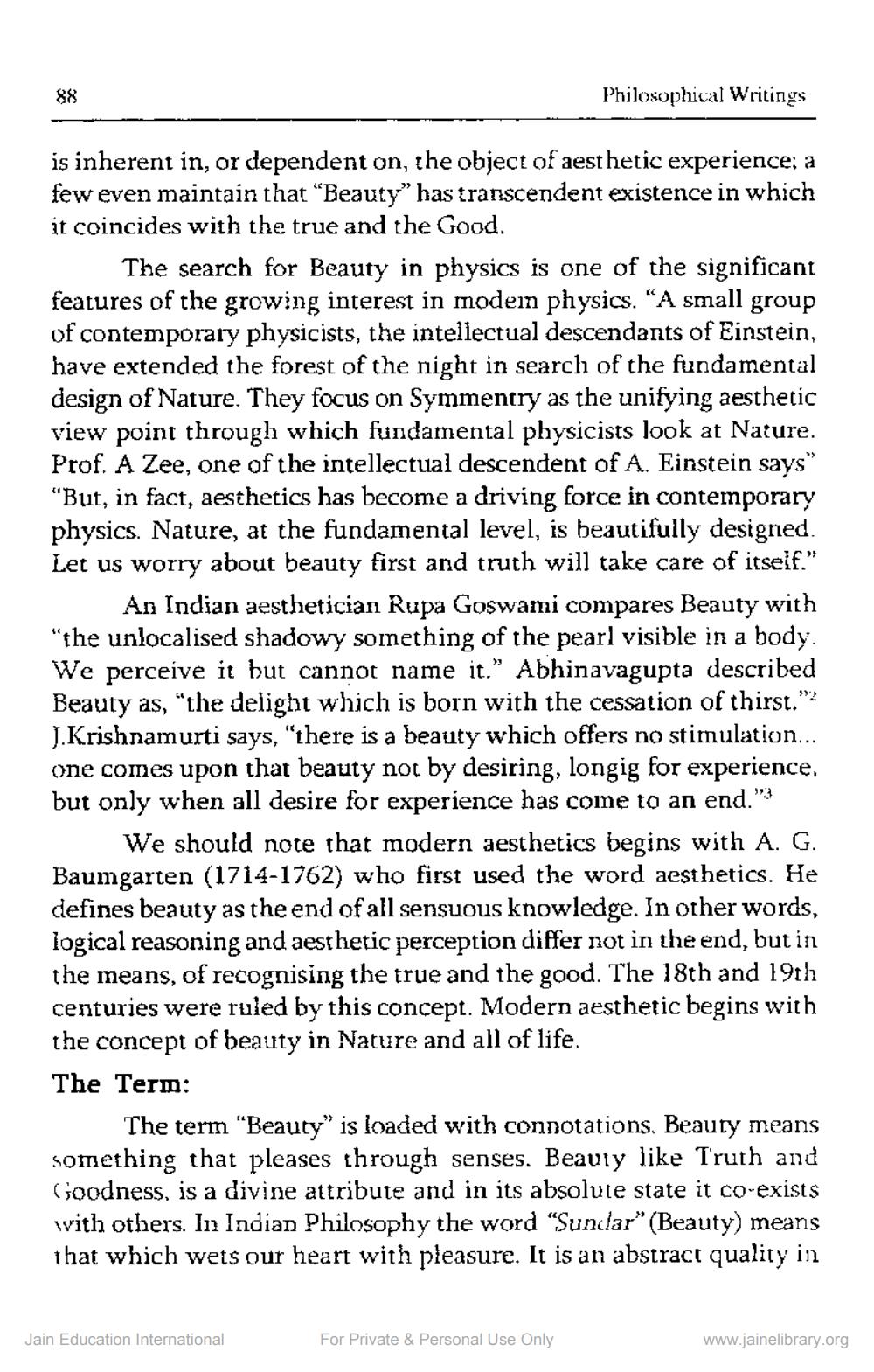Book Title: Concept of Beauty in Vedant Author(s): Hemant Shah Publisher: Z_Philosophical_Writings_001802.pdf View full book textPage 2
________________ 88 Philosophical Writings is inherent in, or dependent on, the object of aesthetic experience; a few even maintain that “Beauty" has transcendent existence in which it coincides with the true and the Good. The search for Beauty in physics is one of the significant features of the growing interest in modem physics. “A small group of contemporary physicists, the intellectual descendants of Einstein, have extended the forest of the night in search of the fundamental design of Nature. They focus on Symmentry as the unifying aesthetic view point through which fundamental physicists look at Nature. Prof. A Zee, one of the intellectual descendent of A. Einstein says" "But, in fact, aesthetics has become a driving force in contemporary physics. Nature, at the fundamental level, is beautifully designed. Let us worry about beauty first and truth will take care of itself.” An Indian aesthetician Rupa Goswami compares Beauty with "the unlocalised shadowy something of the pearl visible in a body We perceive it but cannot name it." Abhinavagupta described Beauty as, “the delight which is born with the cessation of thirst. "? J. Krishnamurti says, "there is a beauty which offers no stimulation... one comes upon that beauty not by desiring, longig for experience. but only when all desire for experience has come to an end."* We should note that modern aesthetics begins with A. G. Baumgarten (1714-1762) who first used the word aesthetics. He defines beauty as the end of all sensuous knowledge. In other words, logical reasoning and aesthetic perception differ not in the end, but in the means, of recognising the true and the good. The 18th and 19th centuries were ruled by this concept. Modern aesthetic begins with the concept of beauty in Nature and all of life. The Term: The term “Beauty" is loaded with connotations, Beauty means something that pleases through senses. Beauty like Truth and Goodness, is a divine attribute and in its absolute state it co-exists with others. In Indian Philosophy the word "Sundar" (Beauty) means that which wets our heart with pleasure. It is an abstract quality in Jain Education International For Private & Personal Use Only www.jainelibrary.orgPage Navigation
1 2 3 4 5 6 7 8 9 10 11 12
